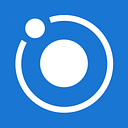Eugene Choi, MD is Chair of Radiology at Good Samaritan Hospital in Los Angeles, Medical Director of Renaissance Medical Imaging Associates (Radiology Partners), and an early architect of features in Orbit like cloud-hosted certificates and audit reports.
We caught up with Eugene over dinner at Bulan Thai Vegetarian Cuisine in Silverlake to find out how he maintains peak fitness while balancing an intense radiology schedule with family life.
Diagnostic radiology is sedentary, and sitting is the new smoking. What do you do to stay active at work?
I am fortunate to have a standing workstation at work and therefore I am constantly standing throughout my 9-hour shift. The standing workstation was initially difficult in the beginning but I have grown accustomed to standing while reading cases and have been doing so for the last two years. Sometimes I have my leg propped up on an adjacent chair, so I can stretch while I am reading.
In addition to the standing desk, I opt for stairs in the hospital and the scattered procedures throughout the day keep me moving. Sometimes, I run approximately 3 miles to work in the morning which allows me to get some cardio in while I am commuting. I am also an avid Crossfitter and usually work out at my “box” 5–6 times a week.
Just last month, a GI doctor that I worked closely with passed away from a massive MI and he was only in his fifties.
What makes Crossfit special versus any other class?
I am a big fan of Crossfit for several reasons. First, it incorporates multiple facets of fitness efficiently in a single hour class, including Olympic lifting, gymnastics, cardio, flexibility, and HIIT (high-intensity interval training). Second, all the workouts are programmed for you in advance. There is no need for planning. Third, there is a social component. It is much easier to push yourself through a high intensity workout in a group class setting. The community aspect of Crossfit makes it both fun and enduring.
How do you balance family, work, and peak fitness?
I need to give credit to my wife who does the heavy lifting around the home so I can do the heavy lifting at the gym and work. I am very conscious of what I eat throughout the day and I’m careful to avoid sitting all day at work.
Physicians need to make fitness and health maintenance a high priority. It is imperative that physicians, as guardians of people’s health, are themselves role models for their patients.
Tell me about your struggle with obstructive sleep apnea
I suffered for several years with obstructive sleep apnea, and it started to interfere with my work. I was often drowsy on shift and had to drink multiple cups of coffee to stay alert. It was also dangerous for me to drive for an extended time. I tried various CPAP and dental devices without success.
After assessing the root cause of my apnea, a skeletal anatomy issue, I opted to undergo maxillomandibular advancement (MMA) last year. This consists of a bilateral sagittal osteotomy and Le Fort I followed by fixation with multiple screws. The recovery was challenging but it was worth it at the end. Prior to the surgery, my apnea-hyponea index (AHI) was 38, consistent with severe apnea. I just got a repeat sleep study last week which indicated an AHI of 4.8, reflecting a complete cure.
And you’re also working on your hyperlipidemia?
Yes, I also have been struggling with hyperlipidemia which I am trying to counteract with diet and exercise. Despite the recommendations from my physician colleagues, I refuse to go on medications for something I can control with lifestyle changes. For me, this means keeping my body fat percentage less than 10%. I think it is a slippery slope when we succumb to the easy option of prescription medication. I would like to avoid the standard pill-box that it is all too common among the elderly.
Any words of advice you would share with other physicians?
Physicians need to make fitness and health maintenance a high priority. It is imperative that physicians, as guardians of people’s health, are themselves role models for their patients. Just last month, a GI doctor that I worked closely with passed away from a massive MI and he was only in his fifties. Another GI doctor colleague, also in his fifties, suffered an incapacitating stroke last year. How can we best take care of patients if we can’t take care of ourselves?
